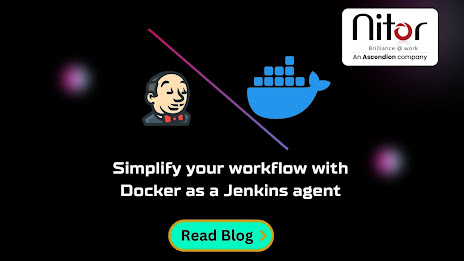Jenkins is an open-source automation server that facilitates the building, testing, and deployment of software projects. Its modular architecture, supported by a vast plugin ecosystem, allows teams to customize workflows to meet specific project requirements.
The core components of Jenkins include the controller (formerly known as the master) and agents (formerly known as slaves). The controller orchestrates the execution of tasks by distributing workloads to agents, which can reside on various platforms, including physical machines, virtual machines, Kubernetes clusters, or Docker containers. This distributed architecture enables parallel execution of jobs, efficient resource utilization, and scalability across diverse environments.
What Is a Jenkins Agent?
A Jenkins agent is a separate machine or container that connects to the Jenkins controller to execute tasks as directed. Agents handle the actual workload, such as building code, running tests, and deploying applications. By offloading these tasks to agents, the controller can manage and coordinate multiple jobs simultaneously without becoming a bottleneck.
Agents can be configured on various platforms, provided they meet the basic requirements of having Java installed and network connectivity to the Jenkins controller. This flexibility allows teams to tailor their CI/CD infrastructure to their specific needs, ensuring optimal performance and security.
Leveraging Docker as a Jenkins Agent
Docker is an open-source platform that automates the deployment of applications within lightweight, portable containers. By using Docker containers as Jenkins agents, teams can achieve consistent and isolated build environments, independent of the underlying host system. This approach offers several advantages:
Consistency: Containers encapsulate all dependencies, ensuring that builds are reproducible across different environments.
Isolation: Each build runs in its own container, preventing conflicts between concurrent jobs.
Scalability: Containers can be spun up and terminated on demand, allowing for dynamic scaling of build agents based on workload.
Resource Efficiency: Containers share the host system's kernel, making them more lightweight compared to traditional virtual machines.
Setting Up Docker as a Jenkins Agent
To configure Docker as a Jenkins agent, follow these steps:
Install Necessary Plugins:
Navigate to Manage Jenkins > Manage Plugins.
In the Available tab, search for and install the "Docker Pipeline" plugin.
Configure the Docker Host:
Ensure that the machine intended to run Docker agents has both Java and Docker installed.
Enable the Docker Remote API to allow Jenkins to communicate with the Docker daemon. This typically involves configuring the Docker service to listen on a TCP port.
Add a New Node in Jenkins:
Go to Manage Jenkins > Manage Nodes and Clouds.
Click on New Node, provide a name, select "Permanent Agent," and configure the necessary details such as the remote root directory and labels.
Configure the Node:
Specify the number of executors, the remote root directory, and any relevant labels.
Under the Launch method, choose the appropriate option based on your setup (e.g., Launch agents via SSH).
Launch the Agent:
- After configuring the node, click on Launch agent to initiate the connection between Jenkins and the Docker host.
Define the Jenkins Pipeline:
Create a
Jenkinsfilein your source control repository with the following structure:This configuration directs Jenkins to use the specified Docker image as the build environment for the pipeline.
Best Practices and Considerations
Security: Ensure that the Docker host is secured and that only authorized Jenkins instances can communicate with it.
Resource Management: Monitor the resource utilization of your Docker host to prevent overloading and ensure optimal performance.
Image Management: Regularly update and maintain the Docker images used for your Jenkins agents to include the latest security patches and dependencies.
Scalability: Consider integrating orchestration tools like Kubernetes for managing large-scale deployments of Jenkins agents.
By leveraging Docker as a Jenkins agent, development teams can achieve a more flexible, consistent, and efficient CI/CD pipeline, ultimately enhancing productivity and software quality.





No comments:
Post a Comment